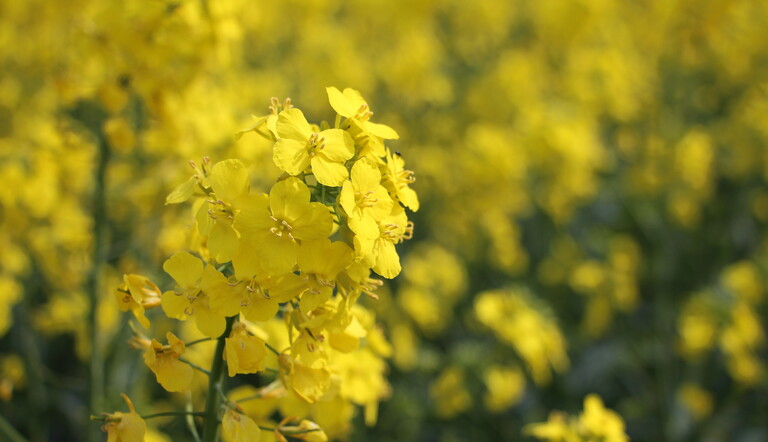
Volunteer control in OSR

Controlling cereal volunteers in newly established crops of oilseed rape is a significant challenge in many rotations, especially in situations where unfavourable weather, ongoing harvest workloads, or rotational choices mean drilling is delayed. The large seed size of cereals enables rogue plants to establish quickly and subsequently outcompete the host crop for light, moisture and nutrients.
The relationship between OSR yield losses and cereal volunteer numbers is linear, with “this relationship…exacerbated by a delay in sowing and by thin or less vigorous crops. For a crop sown on 26 August, 100 volunteers/m² can give a 5% yield loss but for crops sown on 9 September this is reduced to only 10 volunteers/m².”
Lutman, 1991. New approaches to weed control in oilseed rape. HGCA, Project Report No. 530
In situations where cereal volunteers are likely to present a significant challenge in oilseed rape, FALCON® (100g/l propaquizafop) is the ideal herbicide as it is effective not just against cereals, but also against ryegrass, common couch and the most commonly found brome species. And, as well as being licensed for used in OSR, it can also be used to protect a wide selection of legumes and vegetables.
At its full application label rate (1.5l/ha) FALCON® effectively checks annual meadow grass up to the weed’s three-leaf stage, with this higher rate giving growers the option to provide an extended period of weed control until a subsequent propyzamide application is made later in the season.
In oilseed rape, FALCON® can be applied at any time prior to the crop’s flower buds becoming visible and 90 days before harvest.
When used to control cereal volunteers prior to tillering, FALCON® should be used at 0.5l/ha, with this rate increasing to 0.75-1.0l/ha if tillering has already taken place and the weed has become well established.

The optimal application window is by the 3-4 leaf stage (from BBCH11-14), with overall efficacy dependent on the prevailing conditions: propaquizafop works best at a temperature of 15-25oC. In cooler conditions, a higher dose may be required. Similarly, an adjuvant may help in cooler climates.
FALCON® can also be used to control black-grass as part of herbicide resistance management strategy involving mixtures and sequences with herbicides of alternative modes of action.
FALCON® (also marketed as SHOGUN® and TITHE ®) is a foliar acting selective herbicide with systemic activity on a wide range of grass weeds and volunteer cereals. It can be used in oilseed rape, potatoes, beet and a wide range of other broad-leaved crops.

Active ingredient: 100 g/l propaquizafop